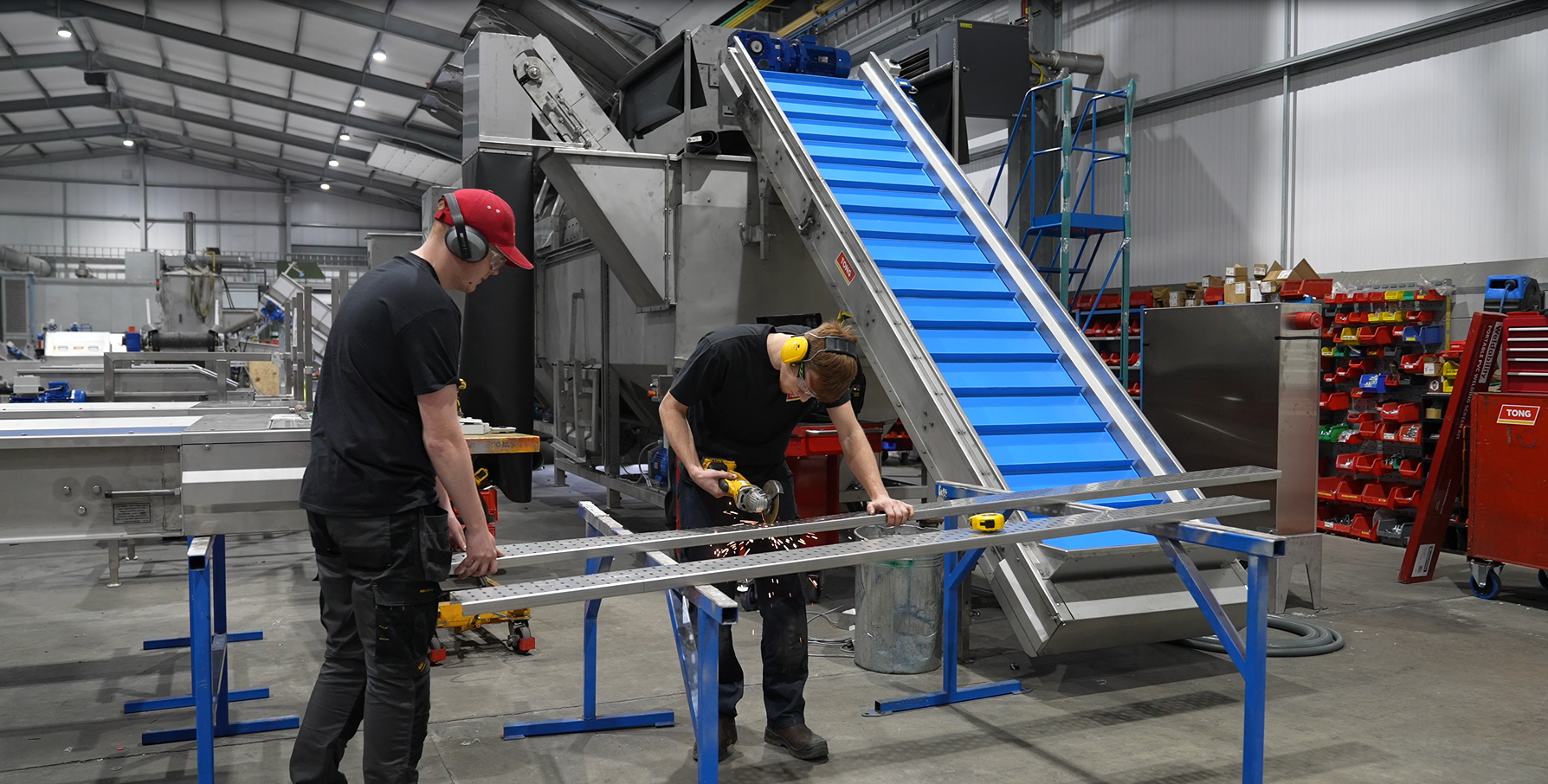Develop Your Workforce with an Apprentice
Develop Your Workforce with an Apprentice
Hiring an apprentice through Boston College gives you the opportunity to shape a motivated employee who works to your standards, follows your proven processes, and grows alongside your business.
The outcome is a skilled, qualified, and focused team member who can strengthen your workforce, increase productivity, and help drive your business forward. Apprenticeships are a cost-effective way to invest in talent while building a pipeline of future-ready employees.
Benefits of Apprenticeships
Many UK businesses report that apprenticeships not only improve the quality of their products and services but also pay for themselves within one to two years, thanks to increased productivity.
- Productivity in their workplace had improved by 76%*
- 75% said that apprenticeships improved the quality of their product or service*
(statistics provided by gov.uk)

Plan For The Future
A Boston College apprenticeship offers a structured, tailored approach to training that ensures your workforce develops the skills, knowledge, and behaviours your business needs. Training is delivered both in the workplace and the classroom, creating a balance of practical experience and professional learning. Your apprentice can also gain exposure to different roles and departments within your organisation, giving them the potential to progress and, over time, become one of your most valuable and knowledgeable employees.
Fill Your Skills Gap
A Boston College apprenticeship provides a structured approach to training, tailored to your business needs, to ensure development takes place and relevant skills, knowledge and behaviours are gained both in the workplace and classroom. Your apprentice could also have the opportunity to gain an insight into various roles and departments within your business - giving them the potential to progress, and in time to be one of your most knowledgeable employees.
Develop Your Existing Workforce
Apprenticeships aren’t just for new recruits - they’re a powerful way to upskill your current staff. Through apprenticeship programmes, employees can work towards higher-level qualifications, including Degrees and Masters, while continuing to contribute as valuable members of your team. This approach helps you retain talent, boost expertise, and build a highly qualified workforce that supports long-term business growth.
Hear more from local accountancy firm Dexter & Sharpe on how employing apprentices benefits their business.
Apprenticeship Courses & Levels
Boston College delivers apprenticeships across 12 different subject areas, meaning that whatever sector you operate in, there’s a programme to suit your business needs. The table below outlines the apprenticeship levels alongside their equivalent qualifications, helping you identify the right level of apprentice for your organisation.
Find the Right Apprenticeship for Your Business
| Apprenticeship Level | Level | Equivalent Education Level |
|---|---|---|
| Intermediate | 2 | Five GCSEs passes at 9-4 (grades A* - C) |
| Advanced | 3 | Two A level passes |
| Higher | 4,5,6,7 | Foundation degree and above |
Apprenticeship Levy
To support the development of skilled workforces, the Government introduced the Apprenticeship Levy in 2017. If your business has an annual wage bill of over £3 million, you’ll contribute 0.5% into the levy. These funds are placed in a digital account for you to reinvest directly into apprenticeship training and assessment.
This means that rather than being a tax, the levy gives your business the opportunity to claim back what you pay in and use it to upskill staff, recruit new talent, and strengthen your workforce for the future.
As an employer, you’ll need to pay the Apprenticeship Levy each month if:
- Your annual payroll bill is over £3 million, or
- You are connected to other companies or charities through Employment Allowance, and together your payroll bill exceeds £3 million.
Your annual payroll bill includes all payments to employees that are subject to Employer Class 1 Secondary National Insurance Contributions (NICs), such as wages, bonuses, and commissions.
It does not include:
- Earnings of employees under 16,
- Employees not subject to UK NICs legislation, or
- Payments where Class 1A NICs apply, such as benefits in kind.
Employers who are not connected to another company or charity receive an annual Apprenticeship Levy allowance of £15,000. This allowance reduces the total levy you pay across the year, meaning only those with an annual payroll bill above £3 million are required to contribute.
The allowance cannot be carried over into the next tax year, and connected companies or charities share a single £15,000 allowance between them.
If you become or cease to be an employer partway through the tax year, you are still entitled to apply the full £15,000 allowance against any levy owed.
For more information, please visit the gov.uk website.

How to Hire an Apprentice
Get in Touch
The first step is to contact Boston College’s Apprenticeship Team to discuss your vacancy and specific business needs. Our team can provide guidance on suitable programmes, entry requirements, and next steps. You can contact them on 01205 313238 or email apprenticeships@boston.ac.uk .

Frequently Asked Questions
The current minimum wage for an apprentice is £7.55 per hour, but you can choose to pay more. This rate applies to apprentices aged 16–18 and those aged 19 or over in their first year. All other apprentices must be paid at least the National Minimum Wage or National Living Wage, depending on their age.
Apprentices must be paid for a minimum of 30 hours per week, which includes any time spent on training at Boston College. They are employed under your own employment contract, which you will provide at recruitment. While most apprenticeships require at least 12 months and one day of training, terms are becoming more flexible for employees working fewer than 30 hours.
Off-the-job training can be delivered flexibly and does not always require a full day away from work each week. Training can take place at your workplace, at the College or another training provider, or online (though it cannot be solely self-directed distance learning). Your dedicated Apprenticeship Coordinator will work with you to plan the most suitable training schedule for your business and apprentice.
Yes. Many employers are using the Government’s funding schemes to upskill their current workforce. Your employee will need to meet the entry requirements for the chosen apprenticeship, and any apprentice who has not yet achieved a Level 2 qualification in English and Maths will be required to complete these as part of their programme.
Apprentices must spend at least 20% of their time on ‘off-the-job’ training. You are required to pay your apprentice for all training or study time, whether it takes place at your workplace or at Boston College.
Apprentices should receive the same employment conditions as other staff in similar roles or grades, including paid annual leave, sick pay, company benefits (such as childcare schemes), and any additional support you provide, such as coaching or mentoring.
Apprenticeship Talent Pool
Looking for support with apprenticeship recruitment? Join Boston College’s Apprenticeship Talent Pool and connect with the next generation of your workforce. Register your details via the link below to access motivated, skilled candidates ready to contribute to your business.
Contact Us
If you’re unsure whether employing an apprentice is right for your business, or if you have any questions, our Boston College Apprenticeship Team is here to help. Call us on 01205 313238 or email apprenticeships@boston.ac.uk.
Our industry specialist advisers can guide you through the apprenticeship process, helping you understand how apprenticeships can develop your workforce, strengthen your business, and support growth.













